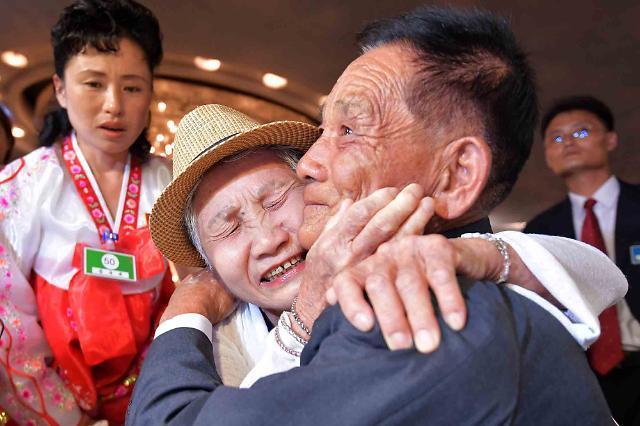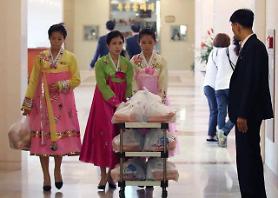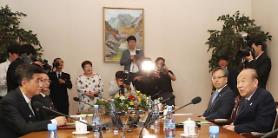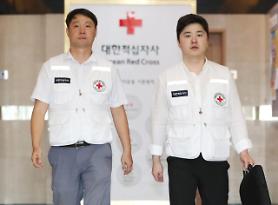
Millions of Koreans were displaced by the sweep of the Korean conflict, which concluded with an armistice rather than a peace treaty, leaving the two Koreas still technically at war. Direct cross-border exchanges such as letters or telephone calls are prohibited. Although family reunions had taken place annually since the inter-Korean summit in 2000, they came to a halt in March 2010 due to military tensions when Seoul accused a North Korean submarine of sinking the Cheonan warship.
The most recent family reunion event was held in 2018 after a historical summit between S. Korea's former President Moon Jae-in and North Korean leader Kim Jong-un at the truce village of Panmunjom, which saddles across the heavily armed inter-Korean border. Government data showed there were 40,099 South Koreans who had families in the North as of October 2023.
According to data released by the Ministry of Unification, the number of South Koreans with family members at the end of November was 39,881. Among 133,983 registered separated family members in South Korea, 94,102 passed away. At the end of last month, 66 percent of divided family members in the South were aged 80 and above.
In September 2023, the unification ministry created a virtual world where users can explore the hometowns of Koreans who fled from the northern area of the Korean Peninsula to the southern parts. The virtual platform, designed to help South Koreans with childhood memories in the North, recreated North Korean cities including Pyongyang on Roblox, a metaverse platform mainly used by young people.
Copyright ⓒ Aju Press All rights reserved.




